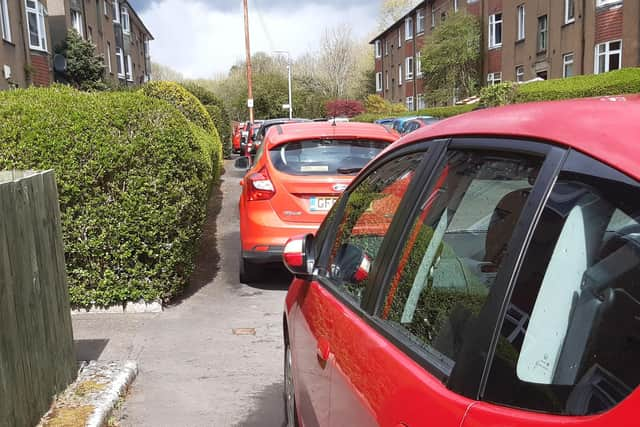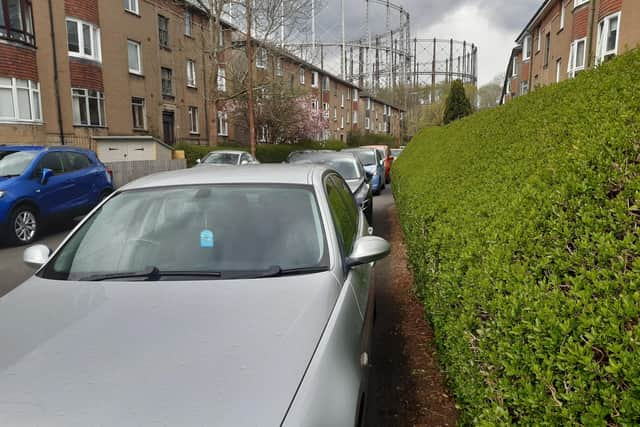Pavement parking ban delay in Scotland to 2023 angers campaigners
Transport secretary Michael Matheson has revealed enforcement of the new pavement parking law will not start until 2023 – four years after it was approved by MSPs following more than a decade of lobbying.
Mr Matheson said the multi-stage process for introducing the legislation had been delayed by the Covid pandemic.
Advertisement
Hide AdAdvertisement
Hide AdHe told a Moving the Vote online election hustings organised by sustainable transport lobby group Transform Scotland that guidance to local authorities on its implementation was not expected to be complete until this summer, then the councils needed to assess which streets should be exempt from the ban.


However, he admitted: "It’s a bane of many people’s lives, including where I stay.”
Mr Matheson said: "Measures for pavement parking require local authorities to take forward assessments because they have the ability to provide for areas where the streets are too narrow and vehicle parking will still be allowed on the pavements.
"Because of the Covid situation, officials at Transport Scotland who were dealing with this had to attend to matters relating to the pandemic,
"As a consequence, the work they were taking forward to develop the guidance for local authorities to carry out that work was paused.


"However, that work started towards the end of last year and they expect to get that consultation underway by the summer, so local authorities can be consulted on the guidance and then take forward the assessment work.
"The local authorities will need about a year to carry that out, so I would probably say it’s going to be into 2023 before they will be in a position to take forward the necessary enforcement action and designate the streets where pavement parking will not be permitted.”
Transform Scotland director Colin Howden said: “It took the best part of a decade for the Parliament to pass legislation to ban pavement parking.
Advertisement
Hide AdAdvertisement
Hide Ad"It is therefore hugely disappointing it’s due to take a further four years from the passage of the Transport Act into law before any action will be taken.”


Stuart Hay, director of Living Streets Scotland, which campaigns for pedestrians, said: “This will be a devastating blow for older and disabled people and parents who continue to be deprived of safe places to walk due to vehicles blocking pavements.”
Age Scotland said pavement parking inhibited the independence of older people and caused damage, creating trip hazards.
Chief executive Brian Sloan said: “News that legislation may not be in place until 2023 is disappointing, particularly as there was such a huge effort to get the law changed, and means that we will be dealing with the dangers related to pavement parking for a further two years.


Sandy Taylor, street access executive for the National Federation of the Blind of the UK, said: “Parked vehicles on the pavements robs us of our freedom of movement, blocking our accessible routes and putting us into dangerous situations.”
However, Neil Greig, the Scotland-based policy and research director of motoring group IAM RoadSmart, said: “The introduction of a pavement parking ban in Scotland will have far-reaching implications in many residential areas and it is important its implementation is not rushed."
A message from the Editor:
Thank you for reading this article. We're more reliant on your support than ever as the shift in consumer habits brought about by coronavirus impacts our advertisers.
If you haven't already, please consider supporting our trusted, fact-checked journalism by taking out a digital subscription.
Comments
Want to join the conversation? Please or to comment on this article.
